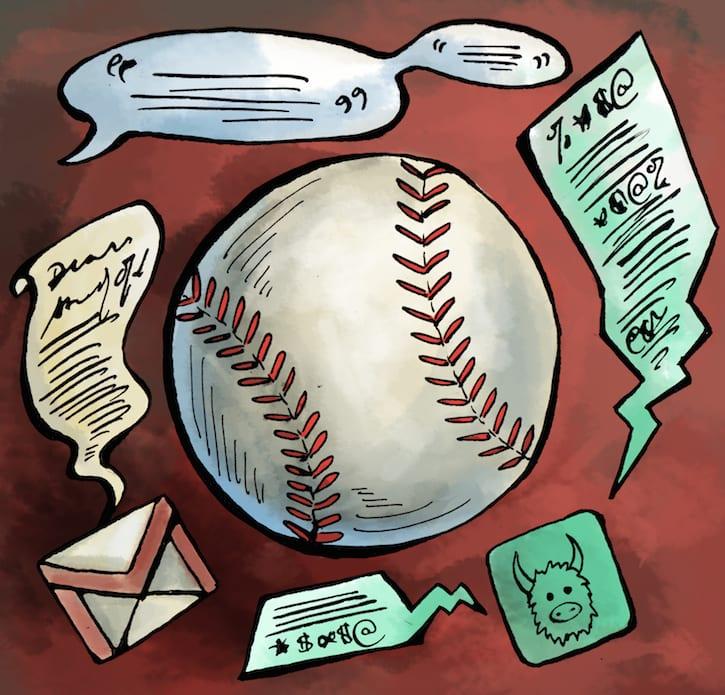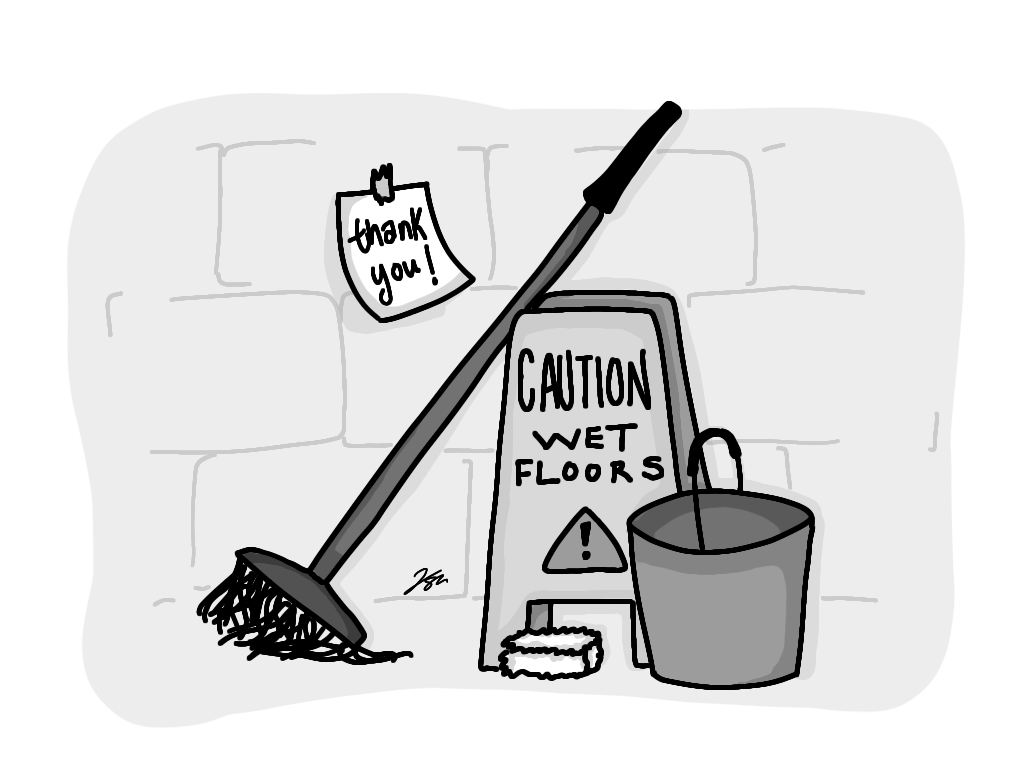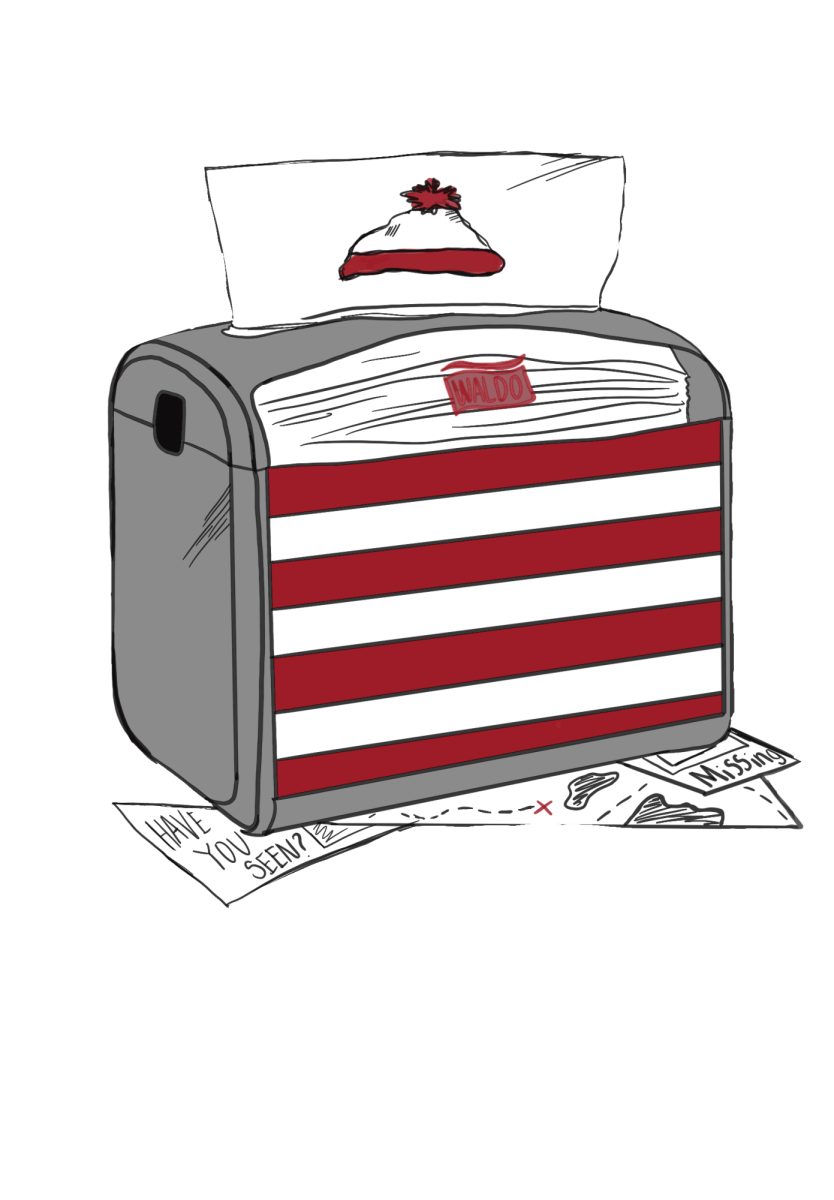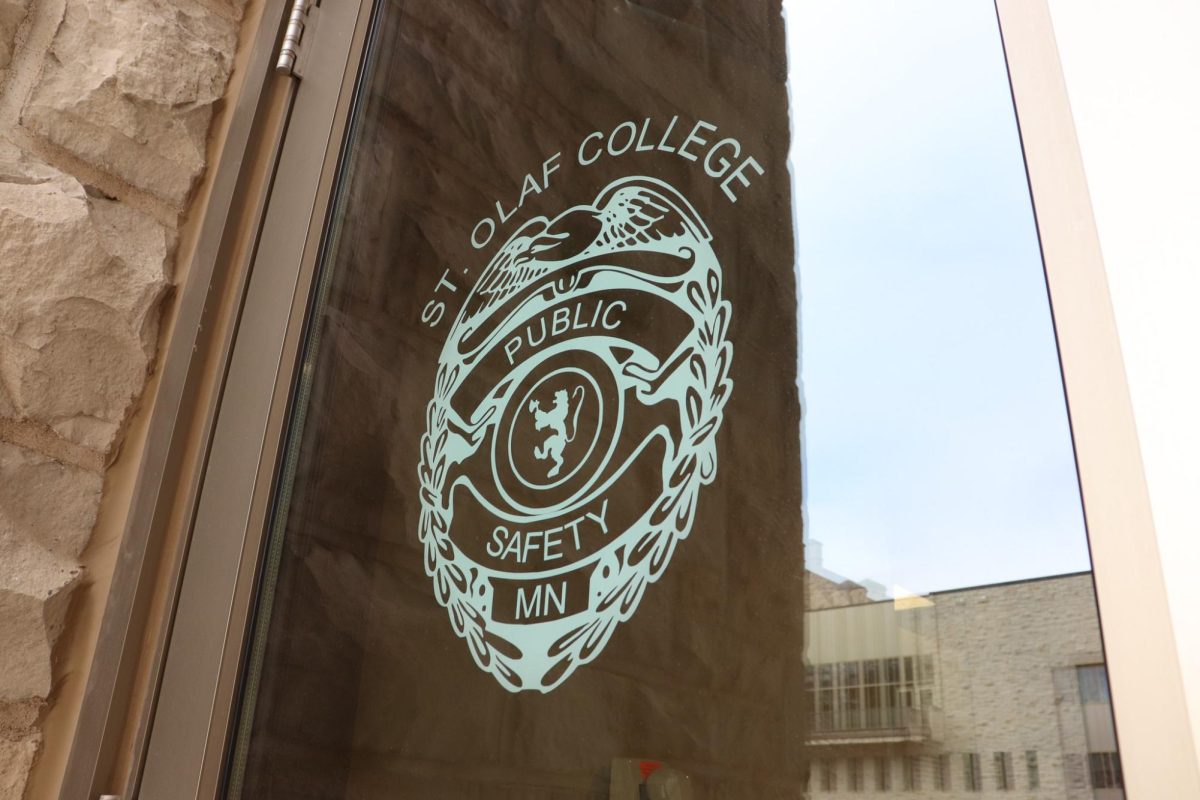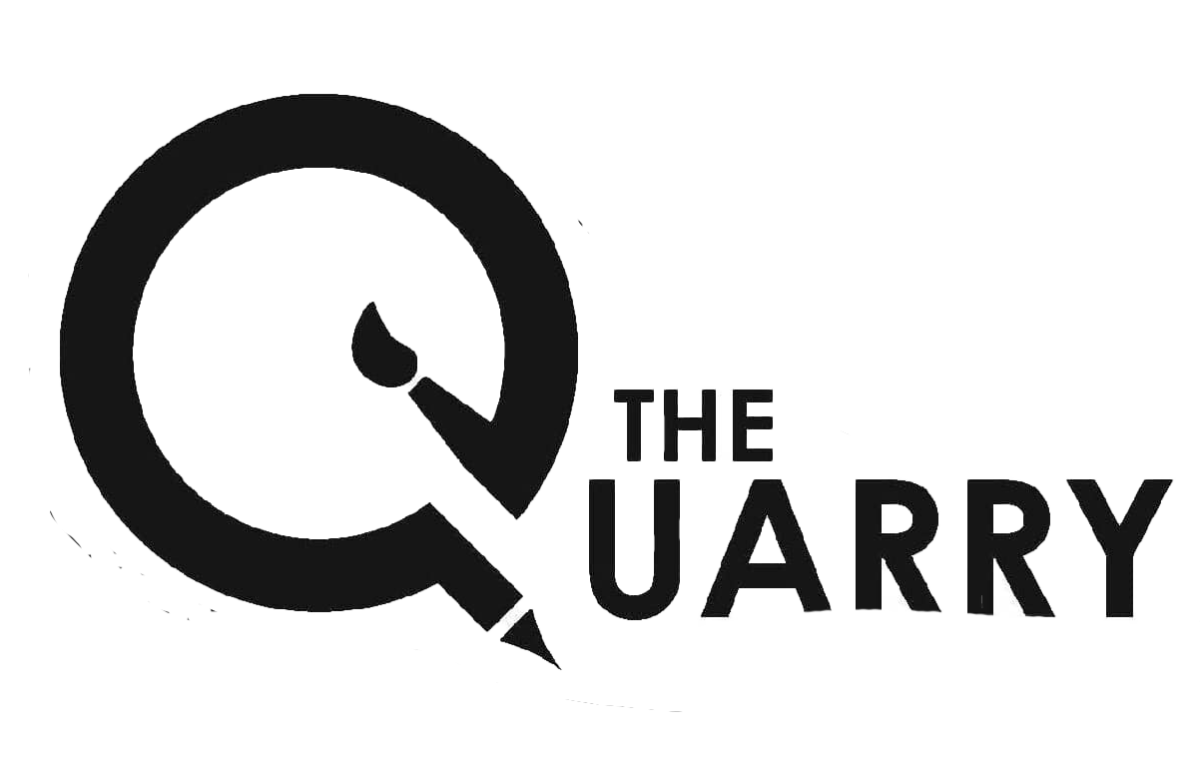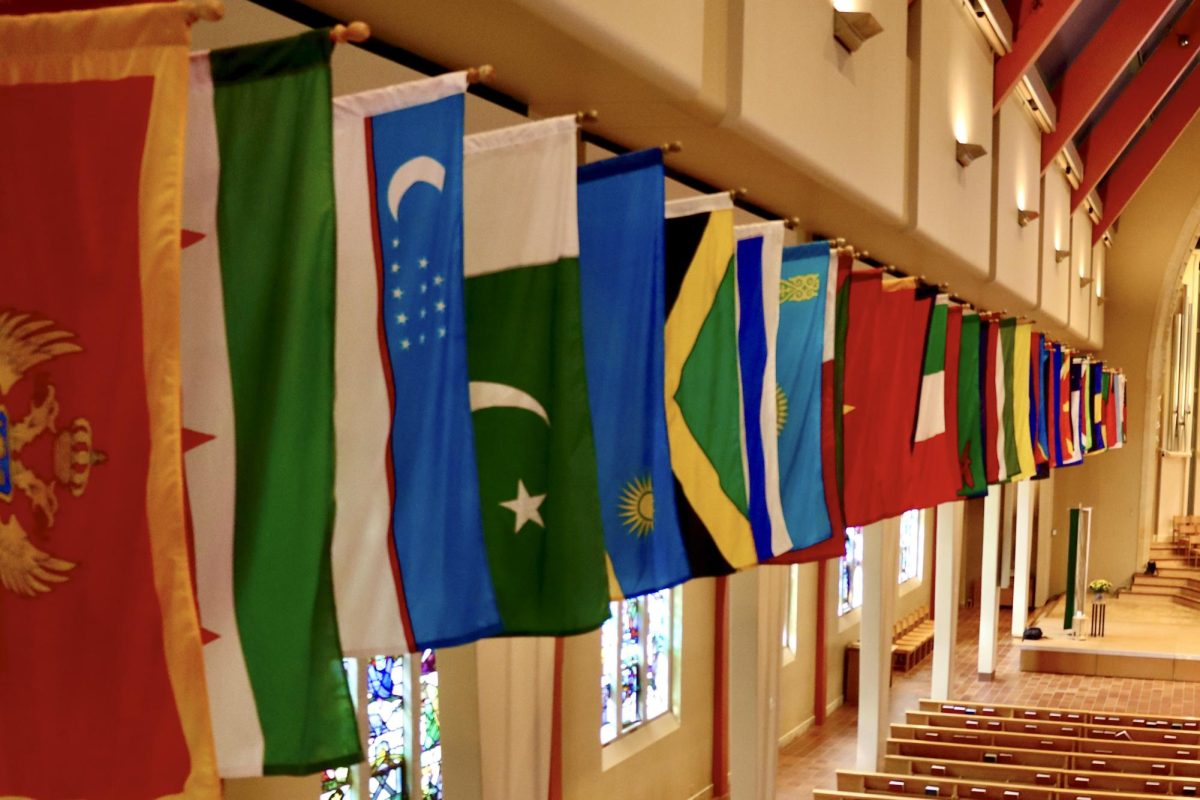On Friday, March 27, St. Olaf students and parents received an email from President David R. Anderson ’74 announcing the cancelation of the baseball season due to violations of hazing policy by the team. The considerable punishment seemed to come as a shock to the campus. In 1999, the St. Olaf men’s tennis season was canceled by the coach following a drinking accident. The St. Olaf administration itself, however, had never conducted a hazing investigation and executed a punishment until this spring.
According to President Anderson, the information that prompted the investigation “burbled up” from all over. A letter to the editor in the Manitou Messenger, chatter on social media and public hazing displays in the cafeteria forced the administration to question what else might have been going on privately with the team. The college worked with a private investigator to discover what was happening off campus. The investigation is winding down, but Anderson says it is not yet finished.
The hazing was said to have occurred the weekend of February 28. Anderson’s e-mail described the incidents, saying that “generally speaking, the investigation revealed conduct that constitutes ridicule, harassment and public displays of servitude under St. Olaf’s hazing policy. The incidents also involved the underage consumption of alcohol. Violations were compounded by an orchestrated attempt to deceive college officials and the outside investigator and prevent them from learning what had happened.”
The public display in Stav Hall provoked a variety of responses from the student body. To some, it was little more than a minor distraction, and the massive blowback came as a surprise.
“I was in the Caf during one of their moments of hazing, but I don’t remember it being that bad, or even realizing what it was. I didn’t pay that much attention,” Cassidy Neuner ’18 said.
On the contrary, social media outlets – in particular the anonymous commentary platform “Yik Yak” – revealed an angrier student discussion.
That evening’s Yak feed was scattered with posts denouncing the team’s actions as hazing and disrespectful to Stav workers and students.
“I saw on Yik Yak that apparently they made a complete mess in the cafeteria, forcing workers to clean it up and people were kind of angry about it,” Christian Conway ’18 said. “I was in agreement. There’s a difference between private things and forcing others to deal with [you].”
The baseball team was quick to address the fact that a lot of the comments made on Yik Yak were inaccurate.
“We felt that a lot of the Yik Yak posts were either just straight up inaccurate or wrong, and that most of them were largely embellished or saturated,” said a baseball player in the class of 2015. He and other seniors spoke to reporters, but wish to remain anonymous.
The events in Stav Hall were quickly old news, but when Anderson’s email was sent out just before break, the conversation resumed on social media.
“I think Yik Yak had the most harsh stuff because it’s anonymous,” said a baseball player. “When we watched the explosion of reactions on Yik Yak, it did cause us to look back at what we did, but the major emotions were that we felt like the rest of the campus was against us. It felt pretty bad to see that much negative press or opinions being posted about us as a group.”
The aftermath of this incident has sparked a more serious conversation about hazing, as well as the involvement of college administration in student life.
“I think that it’s difficult to sort out, but all of these things probably aren’t just coming to the forefront now. The administration probably knew about [the hazing] gradually,” RobertMiller ’18 said. “They could have done something less excessive than completely taking the rest of their season, and instead taken steps to work with the teams and work with the leaders of the teams towards a collaborative solution. And now, no one comes out of this on top. Everyone is angry, and you leave more sports players feeling disillusioned, not represented, and almost targeted by the St. Olaf community and faculty.”
The baseball team was insistent on letting students and administrators know that they didn’t have any cruel intentions and that the team is still supportive of and close to one another.
“Overall what we want to say is that we’re sorry for everything we did and we knew we made some mistakes, but at the same time, we want to get the message out that we never had any malicious intent and nobody on the team was harmed,” a senior player said.
Brittany Kembel ’16 had a reaction of disappointment, not with the team, but with college leadership.
“I was kind of appalled that President Anderson took time to construct this letter when so many other more important things have happened this year that he hasn’t addressed,” Kembel said. “There was a hate crime that happened. There are general race and diversity issues that students have really been wanting to talk about and been wanting the admin to address…I feel that those would be things that are normally addressed by a president.”
Anderson said that he has received mixed bag of feedback from parents, students, and the community, but overall, many people support his decision to cancel the season.
“I receive support and pushback for pretty much everything I do. I’ve gotten a lot of feedback about it, and it’s been along the lines of ‘we agree that hazing has no place at St. Olaf; thank you for taking decisive action and affirming our values.’ Not everyone feels that way, but in the vast majority of responses that I’ve recieved, that’s been the message,” Anderson said.
The baseball team will continue to practice this spring, but they won’t play within the MIAC conference or against outside teams until next year.
“I guess our goal going forward is to make sure that that stuff doesn’t happen anymore,” the baseball seniors said. “As much as it sucks to be made an example of, we want people to learn from us and this situation.”
Graphic Credit: ERIN KNADLER/MANITOU MESSENGER
